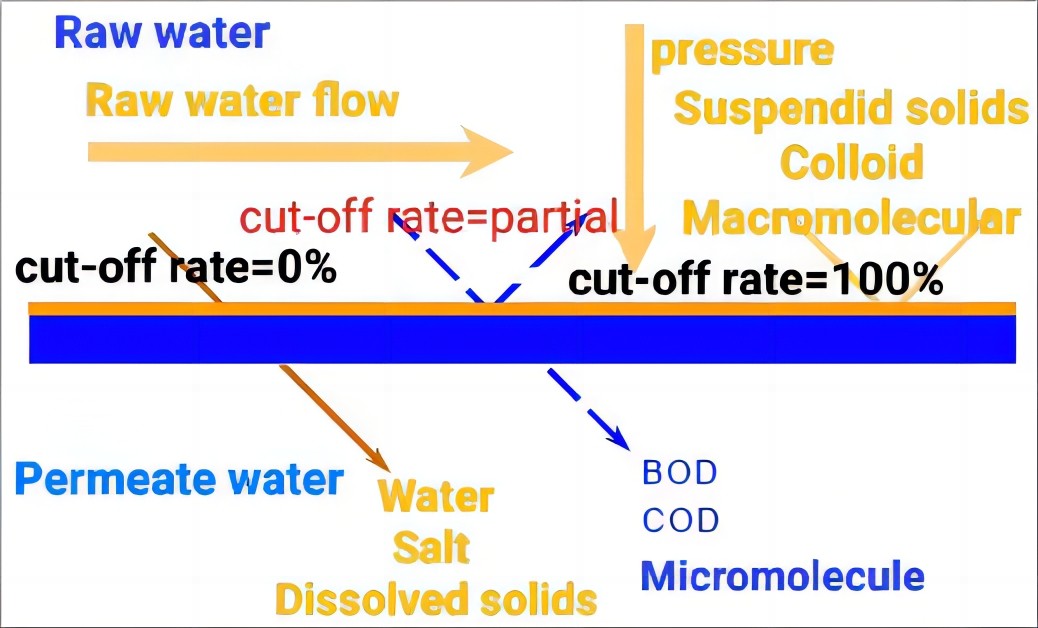UF Working Principle

UF Working Principle
Ultrafiltration(UF) membrane is a variety of membrane filtration in which pressure differential of two sides leads to a separation through a semipermeable membrane.UF pore size is 0.002〜0.1µm and MWCO(molecular weight cut-off) is 30000〜100000 Dalton. Suspended solids and solutes of high molecular weight are retained in the so-called retentate, while water and low molecular weight solutes pass through the membrane in the permeate(filtrate).
二、 Characteristics and Specifications of UF
1、Characteristics
⑴ Membrane Material
Veolia ZeeWeed1500 UF modules are made from PVDF. It provides high mechanical strength, chemical resistance, good hydrophilicity, excellent anti-pollution ability, pH range 5~10.
⑵ Module Structure
Hollow fiber UF modules have two flow paths: inside-out and outside-in. Inlet
passage of inside-out is hollow fiber cavity. Inlet passage of outside-in is between membranes. This system uses outside-in flow path.
2、Specifications
⑴ Material:PVDF
⑵ Operating pressure:≤0.20Mpa
⑶ Operating temperature:0-40℃
⑷ pH range:5~10
⑸ Maximum inlet pressure:≤0.38 Mpa
⑹ Maximum TMP(transmembrane pressure):≤0.2 Mpa
⑺ Maximum backwash pressure:≤0.15 Mpa
⑻ Backwash flux:60-80L/m2h
⑼ Chemical:citric acid(or hydrochloric acid), caustic soda, sodium hypochlorite
3、Feed Water Quality Requirements
In order to avoid membrane fouling and blocking caused by poor water quality,the water that enters UF module should meet the following requirements:
⑴ Turbidity:≤15NTU
⑵ TSS(total suspended solids):<10mg/L
⑶ Fe:<0.5mg/L
⑷ CODcr:<50mg/L
⑸ pH range:2〜10
⑹ Organic solvent:alcohol,ketone, benzene and etc are forbidden
⑺ Instantaneous residual chlorine tolerance:5000ppm
notice:
①When feed water contains oil, organic matters, oxidizing matters(residual chlorine, O3,H2O2, etc), surfactant, defoaming agent and etc, please contact our engineering department and operate the system under the guidance of technicians.
②When pretreatment adopts flocculation process, please carry out cup test and control the amount of
flocculant strictly. Too much or too little of flocculant will cause membrane fouling which affects permeate
flux.
③When there is algae and microorganism, add 15〜50mg/L bactericide to avoid the growing up of algae or microorganism which will contaminate the membrane.





 Language
Language




 Network Supported
Network Supported